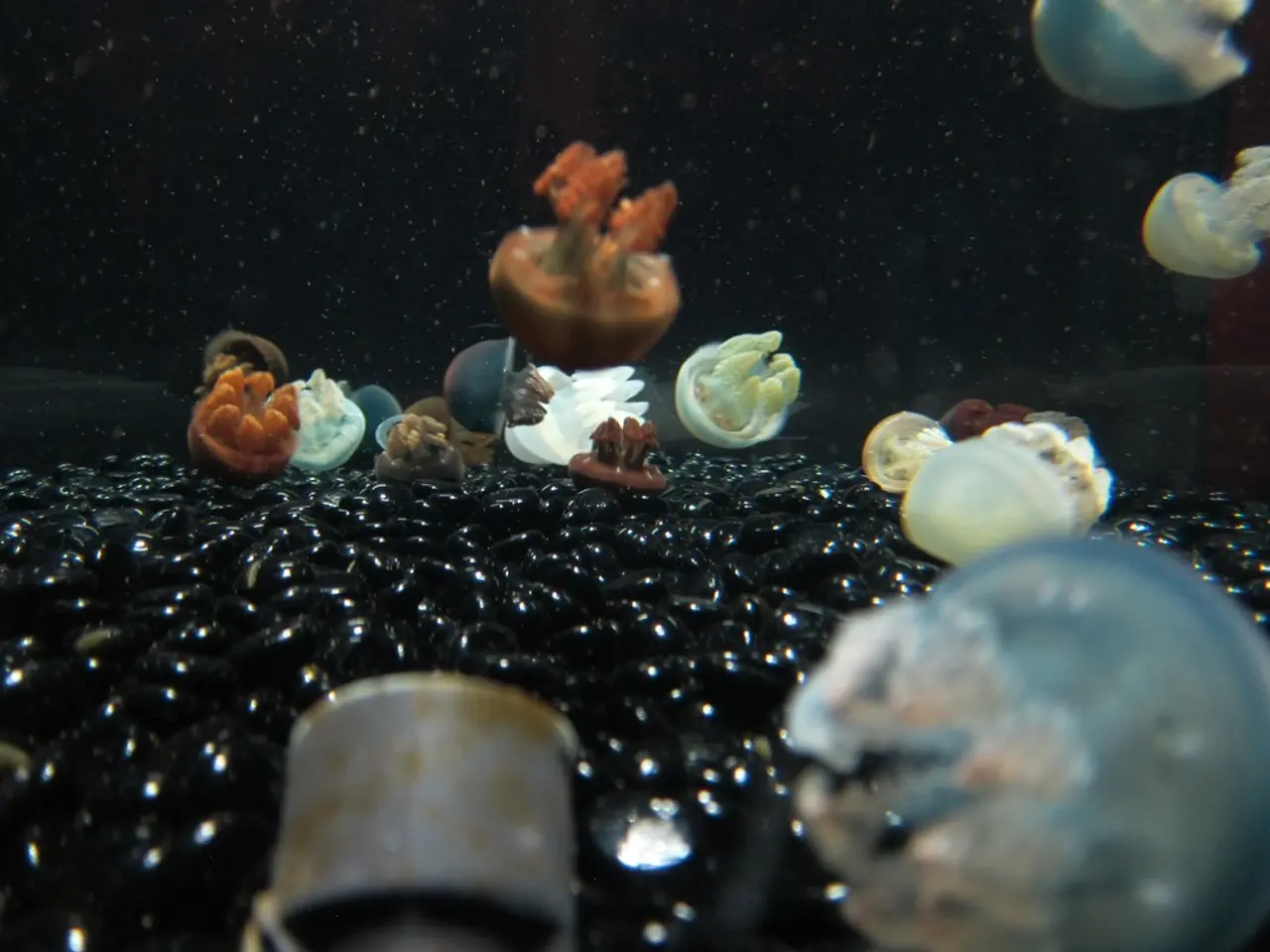Nuclear power plants in France halt operations due to jellyfish invasion during heatwave
The Electricite de France (EDF) has announced the temporary shutdown of four atomic reactors at its Gravelines power plant near Calais, France. The shutdown comes after a massive swarm of jellyfish blocked the filter drums of the pumping stations that supply cooling water from the nearby canal feeding into the North Sea.
The Gravelines power plant, located on the north coast of France, has been affected by this unusual incident. The shutdown occurred over a weekend and was triggered as a safety precaution without impacting personnel or the environment. This incident highlights increasing jellyfish blooms linked to warmer ocean waters and low-oxygen zones caused by climate change and agricultural runoff.
Similar incidents have been reported in the past. For instance, in 2021, the Torness nuclear power plant in Scotland also underwent an emergency shutdown due to jellyfish clogging its seawater cooling intake pipes. Other notable incidents include the 2013 closure of the Oskarshamn nuclear power plant in Sweden due to jellyfish blocking cooling water intakes.
Research suggests that jellyfish blooms might be more frequent near nuclear plants due to thermal discharges raising local water temperatures, although further study on this ecological feedback is needed. It is also worth noting that jellyfish populations have been reported to "bloom" during marine heatwaves.
In addition, data from the Copernicus Marine Service shows the intensifying marine heatwave off the west coast of France, with the Gravelines area experiencing unusually warm waters in the English Channel. High temperatures in the Garonne and Rhone rivers may compromise cooling procedures at some atomic sites, although no such issues have been reported at Gravelines as of yet.
EDF has faced similar issues in the past, with fish clogging up filters at another French nuclear site in 2021. The utility has flagged potential curbs to its nuclear output due to the ongoing heatwave in Europe, emphasising the need for diverse energy sources to ensure a stable power supply.
Meanwhile, France has closed several beaches due to invasions of jellyfish with stinging tentacles, according to Meduseo reports. As the climate continues to change, it seems that such incidents may become more common, underscoring the importance of research and preparedness in the face of these challenges.
[1] Climate change and jellyfish blooms: A growing concern for nuclear power plants [2] Jellyfish shut down nuclear power plants: A review of incidents and potential causes [3] Marine heatwaves and jellyfish blooms: A case study from the English Channel [5] The impact of agricultural runoff on jellyfish blooms: A case study from the Mediterranean Sea
Read also:
- Nuclear plant revitalized: Artificial intelligence-led demand breathes life into the Great Lakes nuclear facility
- Investment of £50 million by British International to enhance Vietnam's shift towards green energy
- IHCL Takes the Initiative in Energy Efficiency Advancements
- Impact of Climate Disasters on Home Insurance Rates: An Examination








